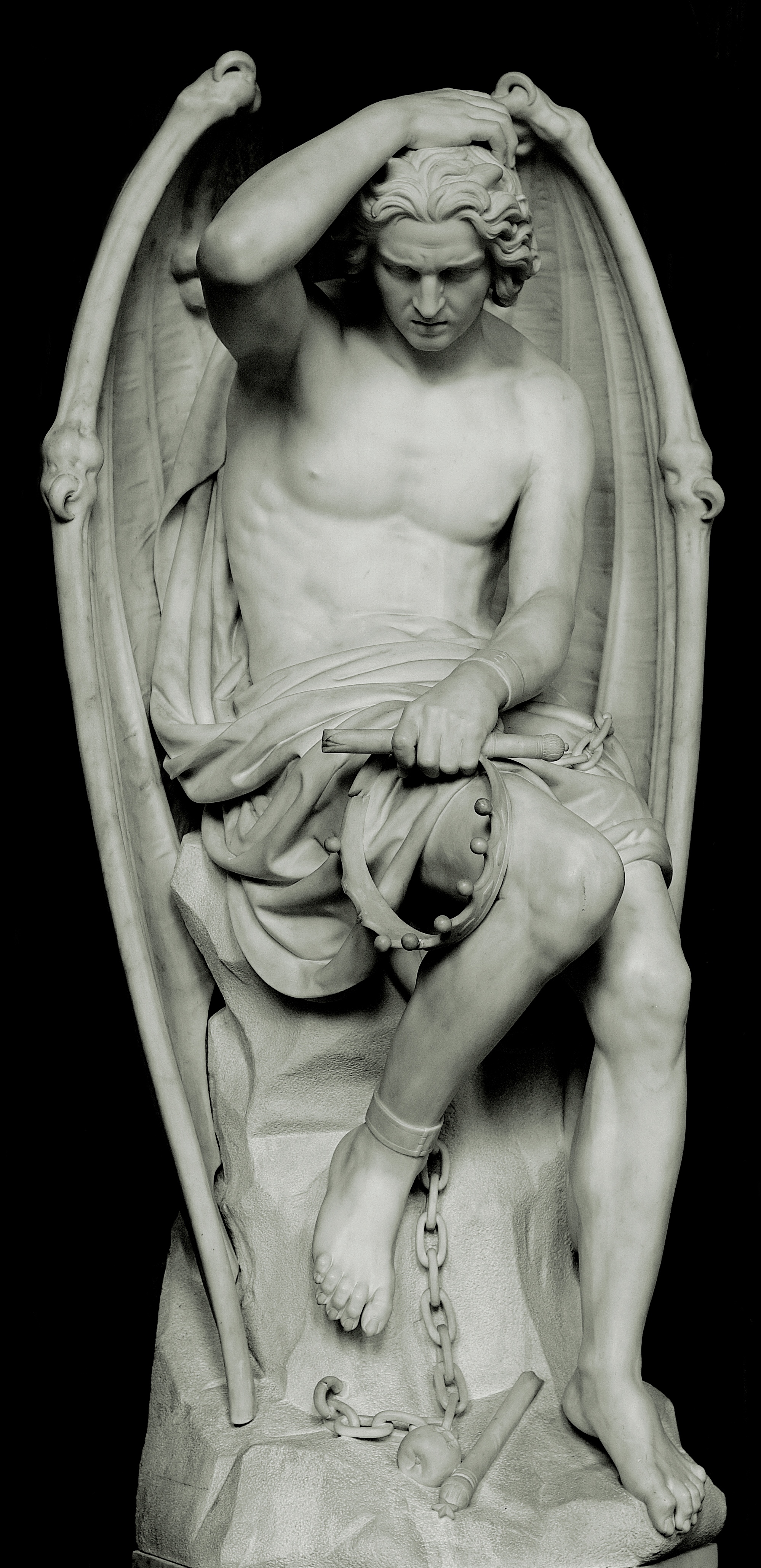 |
Le Génie du Mal (1848)
|
As one might perhaps expect, this idea of despair carries over into Paradise Regained as well. I was struck by a particular passage in Book III, where Milton described the tempter as "inly racked" (203). Satan remarks, "[A]ll hope is lost / of my reception into grace; what worse? (204-205). This again shows the conflict between Satan's emotions and his words, though in this instance, the reader understands a bit better the emptiness in his words; we realize that those same words which he's speaking are the words that rack his soul and conscience. The verb "to hope" in Latin is spero, and so de-spair then becomes a state wherein one is deprived of hope. This mirrors the words of Milton's adversary, who says "all hope is lost." He recognizes to some extent the futility of his own struggle, realizing that whether or not Christ reigns, Satan himself is still damned and that success will not bring him out of his despicable state.
In any case, I think this supports the idea that I've been pushing, that truly understanding Milton's Satan figure requires that we see him, in sense as human--that we decouple him from his archetypal or Biblical character and look at him instead as a representation of one of the graduated stages of mankind's fallen condition.
What are your thoughts on the matter? Do you see credence and/or relevance in this topic? What are some areas where someone might argue against it?
I do think that proto-thesis statement at the end is quite clear and a solid point to build upon. It is interesting to consider how one can or might decouple his representation or shift it as you say. (Also, take a look at what Heather Moon has said about Christ's identity and conflict with Satan, which might be pertinent) http://teammilton.blogspot.com/2013/11/what-is-ambition-miltons-look-at-satan.html
ReplyDelete